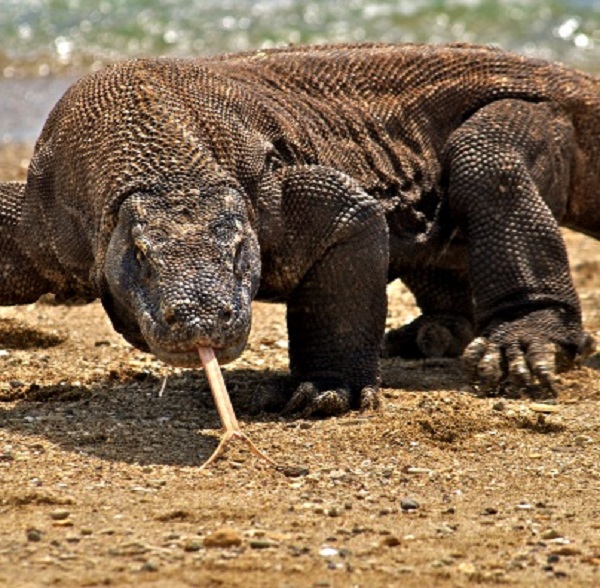They’re the largest lizards in the world, with deadly saliva that’s loaded with at least 57 species of bacteria to bring down their prey.
And, according to new research, the blood of Komodo dragons could be the key to developing new drugs in the fight against antibiotic-resistant superbugs.
The team used a method known as ‘bioprospecting,’ revealing antimicrobial protein fragments in their blood that protects them against infections.
In the study, researchers investigated whether they could isolate substances known as cationic antimicrobial peptides from Komodo dragon blood – massive lizards the dwell on five small islands in Indonesia.
These CAMP substances are an essential part of the innate immune system, and the team had previously done this with alligator blood.
In a technique called bioprospecting, they incubated the Komodo dragon blood with negatively charged hydrogel particles that they developed to capture the positively charged peptides.
This allowed the researchers to identify and sequence 48 potential CAMPS with mass spectrometry.
All of these, except for one, were derived from histone proteins.
These types of proteins are known to have antimicrobial activities.
The researchers then synthesized eight and tested them against Pseudomonas aeruginosa and Staphylococcus aureus.
The antibiotic resistant strain of S. Aureus (MRSA) is a growing problem worldwide.
The analysis revealed that seven of the peptides from the Komodo dragon blood were potent against both of the bacteria.
The eighth peptide was only effective against P. aeruginosa
It’s thought that the bacteria in Komodo dragons’ saliva help them to kill their prey.
But, the dragons themselves appear to be resistant.
According to the new research, serum derived from the animals may have antibacterial abilities as well.
This could pave the way for new therapeutics to treat antibiotic resistant bacteria.
‘The study demonstrates the power and promise of our bioprospecting approach to cationic antimicrobial peptide (CAMP) discovery and it reveals the presence of a plethora of novel histone-derived antimicrobial peptides in the plasma of the Komodo dragon,’ the authors wrote.
‘These findings may have broader implications regarding the role that intact histones and histone-derived peptides play in defending the host from infection.’ According to Daily mail.
N.H.Kh

